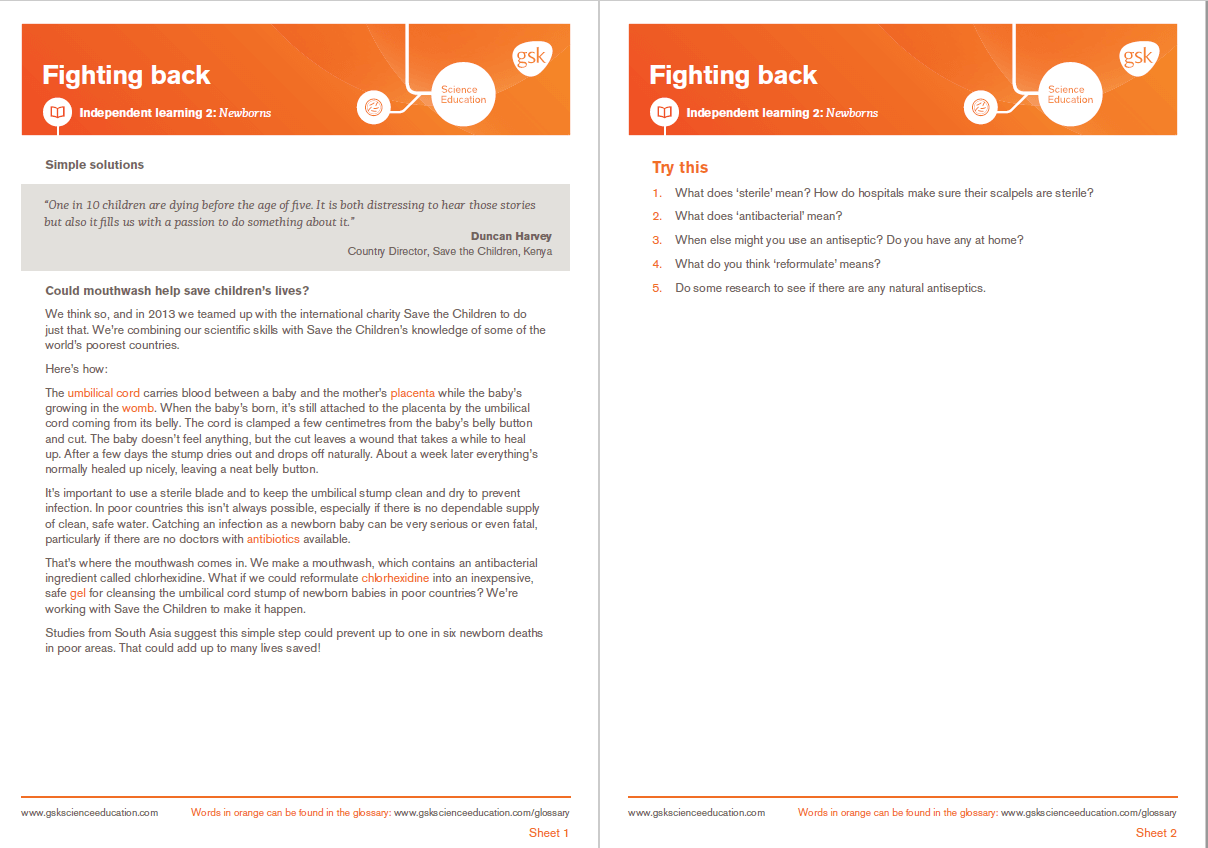This independent learning activity tasks students with looking into infections in newborns, while their umbilical cord wound is still healing.
While it’s important to use a sterile blade and to keep the umbilical stump clean and dry to prevent infection, in poor countries this isn’t always possible, especially if there is no dependable supply of clean, safe water.
Catching an infection as a newborn baby can be very serious or even fatal, particularly if there are no doctors with antibiotics available.
Could mouthwash provide a solution? GSK makes a mouthwash, which contains an antibacterial ingredient called chlorhexidine. What if we could reformulate chlorhexidine into an inexpensive, safe gel for cleansing the umbilical cord stump of newborn babies in poor countries?
This resource forms one part of a topic on ‘Fighting Back’. You can watch a video on Malaria on the GSK STEM Education website, here, and find the other four resources at these links:
- Lab Activity 1: Infection Transmission
- Lab Activity 2: Developing a Vaccine
- Lab Activity 3: Grow Microbes
- Independent Learning 1: Tuberculosis
Find more great resources from GSK here.
 GSK is a science-led global healthcare company with a special purpose: to help people do more, feel better, live longer. GSK Stem Education believes in the magic of science and wants to share a passion for science with students and their teachers everywhere.
GSK is a science-led global healthcare company with a special purpose: to help people do more, feel better, live longer. GSK Stem Education believes in the magic of science and wants to share a passion for science with students and their teachers everywhere.Find out more about GSK STEM Education here and follow GSK on Twitter at @GSK.














